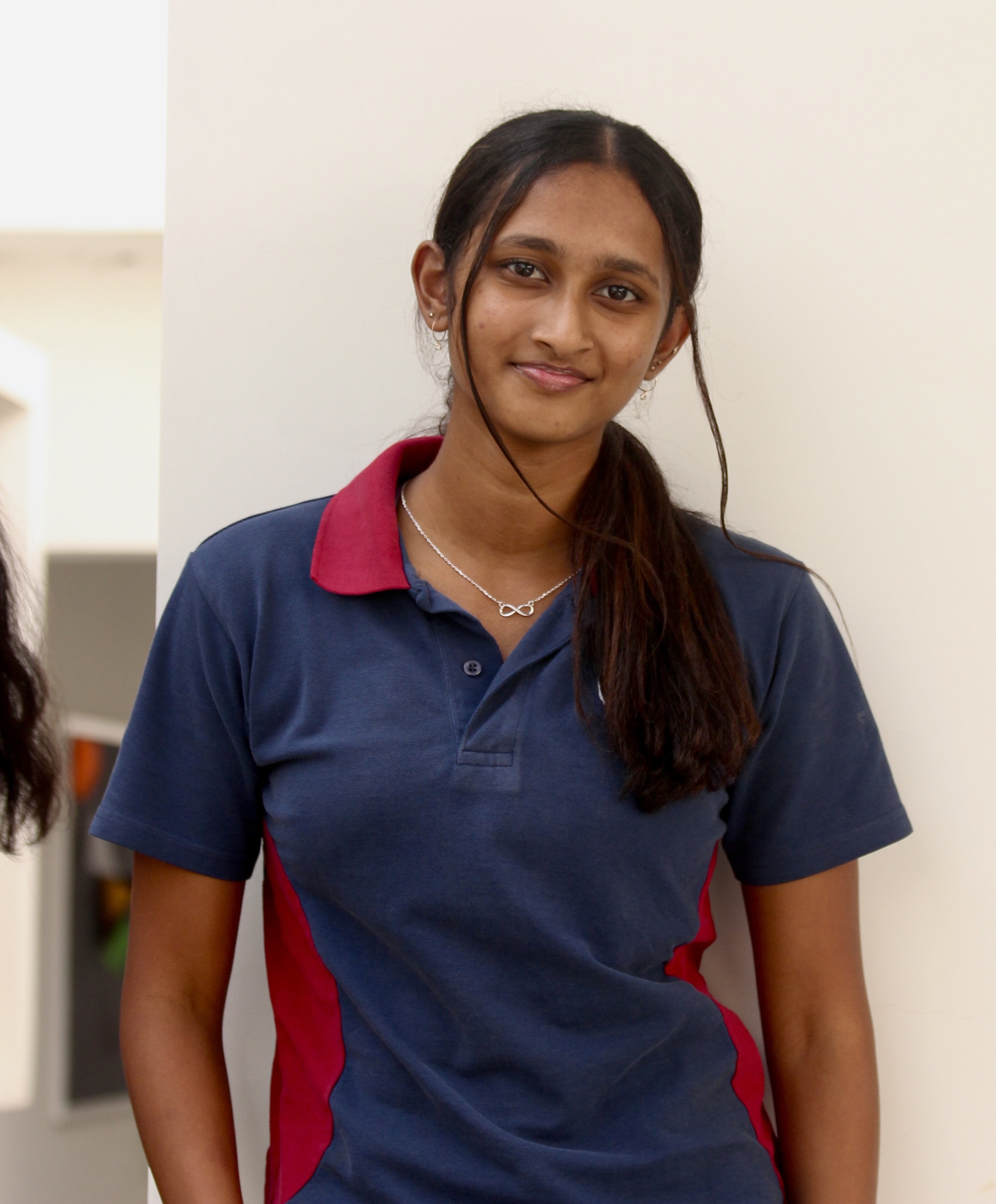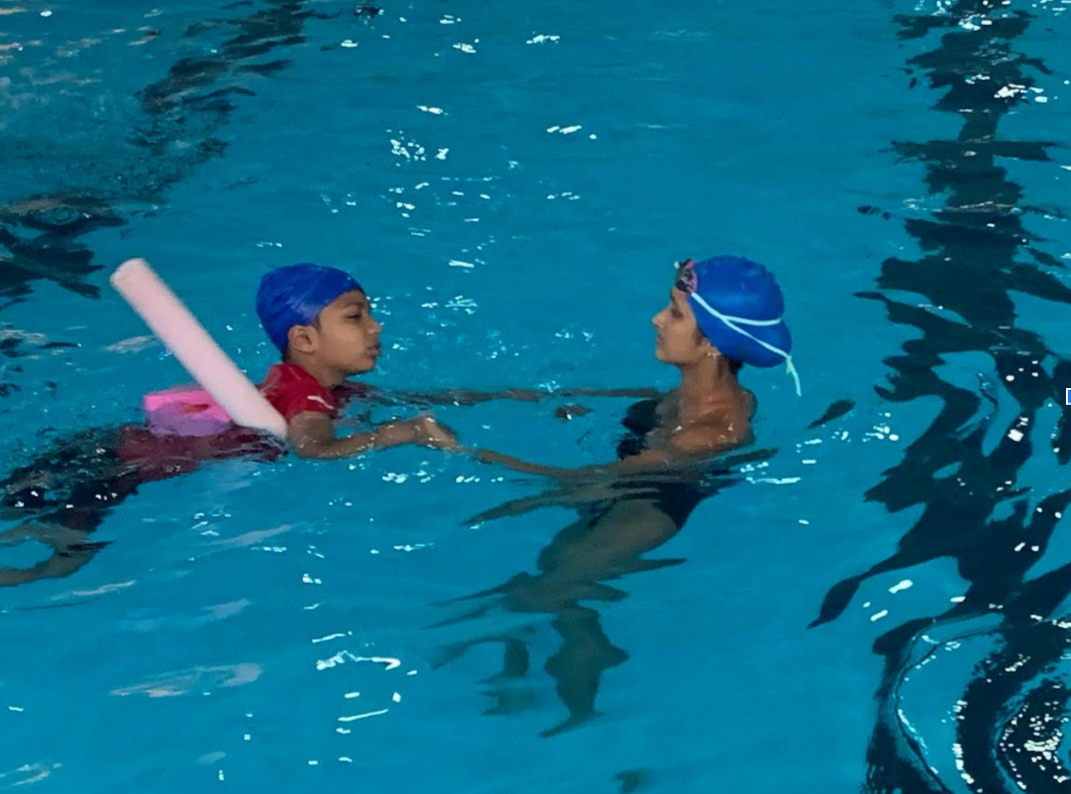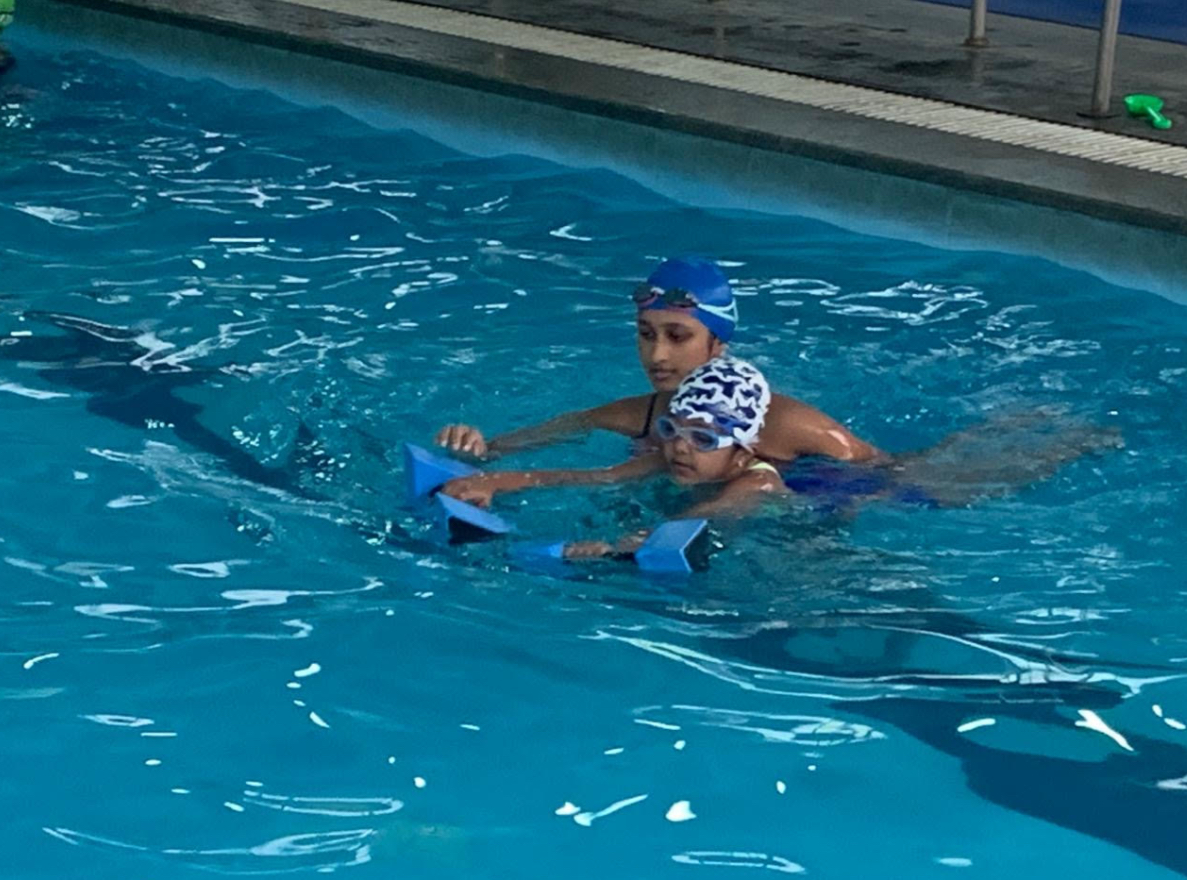About Me

Swimming has always been more than just a sport to me; it has been a defining part of my life. The water, once a place of comfort, also became a space where I pushed myself to the very edge—physically, mentally, and emotionally. As I reflect on my journey, I realize it was never just about the races, the medals, or even the records. It was about transformation, or as the Sanskrit word Vikara captures so beautifully, a deep, ongoing evolution.
I started swimming competitively at a young age, and by the time I turned 16, I was one of the top 10 national-level swimmers in my age group. Representing Karnataka for five consecutive years at the national level and winning 8 gold, 9 silver, and 8 bronze medals was exhilarating. I broke records, set new personal bests, and accomplished more than I ever imagined. But beneath the surface of success, there was an internal struggle I couldn’t ignore.
Being in an elite training environment, constantly pushing myself harder and faster, took its toll. The pressure of maintaining peak performance, the strict diet regimens, the relentless practices—it all started to weigh on me. While I was achieving greatness in the pool, I found myself grappling with the mental challenges that came with it. It wasn’t just physical exhaustion; it was the emotional and mental fatigue of striving to meet everyone’s expectations, including my own. I had always been competitive, but this time, it felt different. I was fighting an internal battle
It’s strange to admit, but while swimming strengthened my body, it was also the arena where my mental health started to unravel. I began feeling trapped in a cycle of perfectionism, and despite all the victories, I couldn’t shake the feeling that I wasn’t doing enough, that I wasn’t enough. The pool, once my sanctuary, had become the stage for my most intense struggles. That’s when I realized that my journey wasn’t just about being fast or powerful—it was about being whole.
During this period, I began to see the importance of mental health and self-care. I sought therapy, delved into self-reflection, and started the hard work of understanding my mind. I realized that the toughest challenges weren’t the races I swam but the mental obstacles I had to overcome. In doing so, I began to see transformation in its truest sense—not just in my athletic performance but in my sense of self.
Being the swim team captain at Vidyashilp Academy for three years taught me about leadership, teamwork, and resilience. I learned to support my teammates not just in the pool but emotionally, too. I started to see how many of us faced similar struggles behind the scenes, the silent battles we rarely spoke about. Mental health, especially in competitive sports, often goes unnoticed. But for me, it became the center of my transformation.
I’m proud of my accomplishments—the medals, the records, the hours of dedication. But what I’m prouder of is the growth I’ve experienced beyond the stopwatch. I learned that strength isn’t just measured by how fast I can swim a lap but by how willing I am to face my own vulnerability. Through this process, I’ve gained an understanding that *Vikara*—transformation—is a journey that continues, both in and out of the pool.
Today, I stand not just as an athlete but as someone who has evolved through pain, triumph, and self-awareness. My swimming journey is far from over, but it’s taken on new meaning. It’s no longer just about the next race or the next goal—it’s about embracing the entire process, the ups and downs, and recognizing that true strength lies in transformation.
Anvita Gowda
- Scroll to Top
© 2024 Reddy Development All rights reserved.

